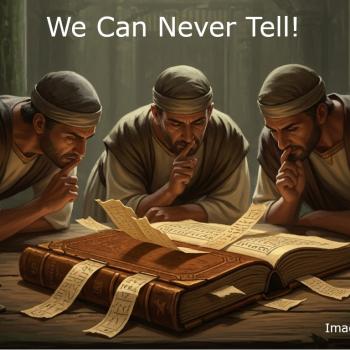My “blog” on Patheos is in the “Progressive” category. I really hate labels because they Pidgeon hole everyone into strict definitions so that there is no need for understanding and no differences. Just throw a label at someone so you can hate or dismiss them. I don’t even like definitions, I like descriptions which are open to growth. But if you’re on Patheos, you’re in some category or you’re not on Patheos. Argh!

Image by Mohamed Hassan on Public Domain Pictures.net
Someone recently created a post with a definition of progressive that they apparently created. Meh. It’s easier to protect your own interests by creating a terrible definition if you want to make someone your enemy.
Are Progressives “libs?” Nope. Conservatives? Nope. Evangelicals? Nope. Do they just promote “change” for the sake of change? Nope.
While no one fits comfortably into a category, it might be best to hear it straight from the horses’ mouth:
“Progressive Christianity, as described by its adherents, is characterized by a willingness to question tradition, acceptance of human diversity, a strong emphasis on social justice and care for the poor and the oppressed, and environmental stewardship of the earth. Progressive Christians have a deep belief in the centrality of the instruction to “love one another” (John 15:17) within the teachings of Jesus Christ. This leads to a focus on promoting values such as compassion, justice, mercy, and tolerance, often through political activism. Though prominent, the movement is by no means the only significant movement of progressive thought among Christians.
“Progressive Christianity draws influence from multiple theological streams, including evangelicalism, liberal Christianity, neo-orthodoxy, pragmatism, postmodernism, progressive reconstructionism, and liberation theology. The concerns of feminism are also a major influence on the movement, as expressed in feminist and womanist theologies.” – Progressive Christianity
I guess there might be a lot to hate in that definition, though I don’t see why there should be – it’s like hating Jesus. I would call the movement Post-postmodern and realism. As someone who studies the history of change in the church, which has changed endlessly for 2000 years, it’s easy for me to see it in perspective. People fled Europe to America for religious freedom. We now have hundreds of varieties of Christianity in the US.
The more things change the more they stay the same
Money and power corrupt. Absolute power corrupts absolutely.
One of the larger varieties, Evangelicalism started in the mid-Seventeenth Century with its emphasis on a “personal relationship with God,” as opposed to the corporate-institutional relationship of Catholicism. Not that Catholics can’t have a personal relationship – there are some differences – it’s just that priests brought burdens and corruption just as they did in Jesus’ day, and definitely do in Evangelicalism today. Where there is power there is corruption.
While on the one hand religion in the US is going through an era of conscience and reappraisal, it’s countered by many who reject change simply because they reject change, and there is a cohort of people who are misogynists, racists, and powerful enough to incite resistance.
Witch trials example
We’ve been through these eras before. While some think they are religiously motivated, religion often plays little part in it.
Europe went through centuries of the “witch craze” in which tens of thousands of people, mostly women, were executed. While the Catholic Church had a history of killing heretics (Inquisition, Cathars), it wasn’t just them.
The Reformation, Counter-Reformation, politics, war, conflict, climate change, and economic recession are all some of the factors that influenced the witch hunts across the two continents in various ways. They were a wide cultural, social, political phenomenon.
These centuries of witch hunts found their way to America. In the Puritan community in Massachusetts the Salem Witch Trials took place after a couple of young girls exhibited strange phenomenon. Twenty people, mostly women and even children, were hanged.
In Salem, the rigid ways of the local minister, greed, paranoia, superstition, Christian doctrine, and strained resources due to a flood of immigrants fleeing war in the northern areas, created a toxic stew that roiled until people found relief in targeting supposed witches and killing them. Inflamed public passion found a release. In 1711, the colony passed a bill restoring the rights and good names of those accused and granted monetary restitution to their heirs.
A Brief History of the Salem Witch Trials. Salvation and Scapegoating: What Caused the Early Modern Witch Hunts?
We’re no different today
We are going through something like the Salem Witch Trials today, driven by the same factors. Greed, Counter-Reformation (era of conscience and reassessment), politics, war, conflict, climate change, economic recession, paranoia, superstition, Christian doctrine, and strained resources due to a flood of immigrants fleeing war. As a result others are constantly being accused of heresy or rejected for differing in their beliefs. Some burn down others’ churches and some threaten war.
Takeaway
Institutions and people in power ensure their own survival. If they don’t have something enticing to offer they often create straw man enemies for people to emotionally react to. This drives them into those loving arms of people who want to misuse them. A “Straw man” misrepresents the position of the other side. It’s like creating your own definition of progressive and then arguing against it.
The end result of this kind of activity is something like the Salem Witch Trials or the Civil War. At some point we need to get smarter about all of this.
Where is Jesus in all of this? He’s out among the people doing good works – same place we should be.
________________________
The standard of belief and conduct for Christianity is love. If there is a legal standard, love is it.
________________________
If you find these articles intriguing, please consider joining the mailing list.
If I’ve challenged your thinking, I’ve done my job.
___________________
Our answer is God. God’s answer is us. Together we make the world better.
– Dorian












